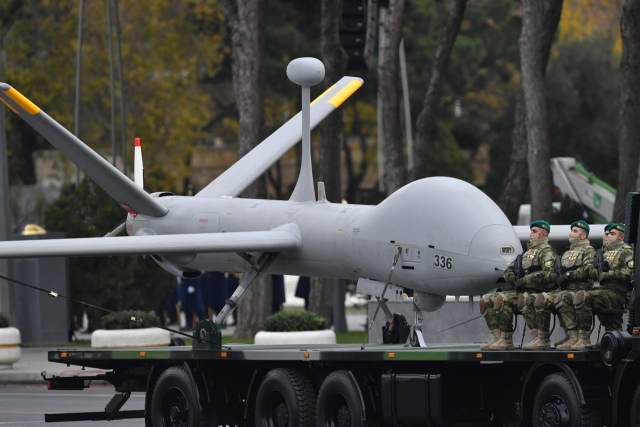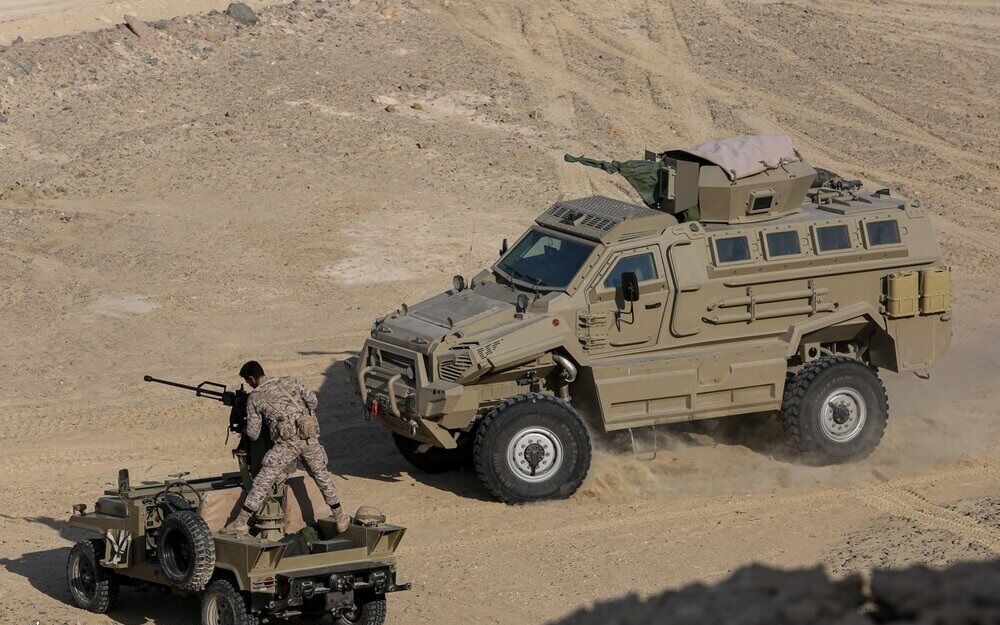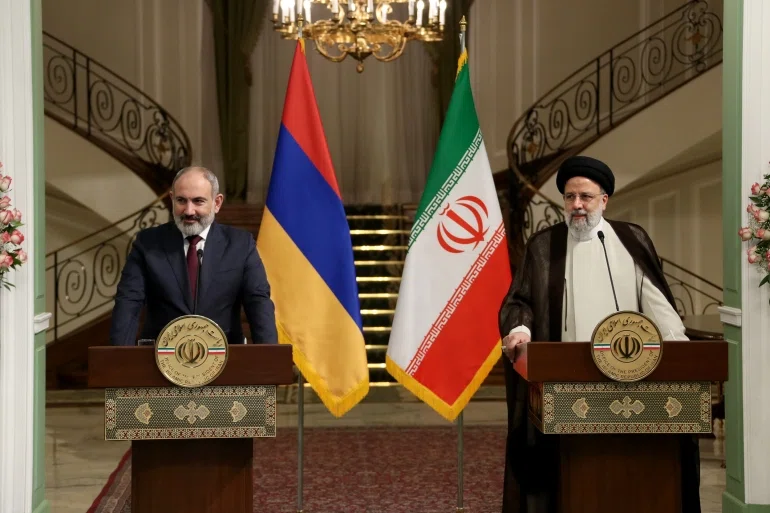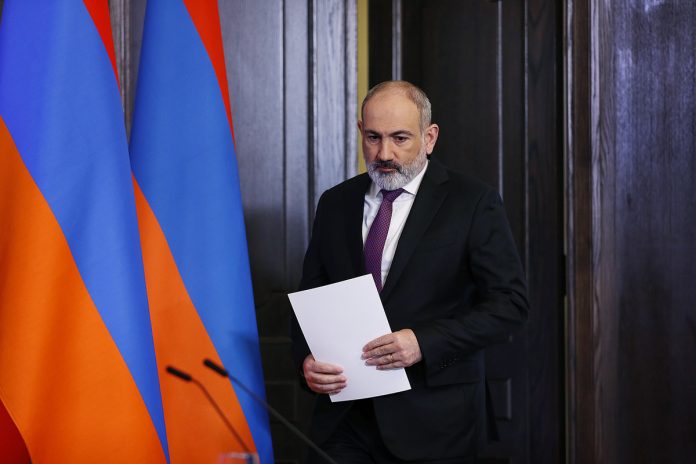On Friday, June 28th, the Iranian Ambassador to Armenia, Mehdi Sobhani, expressed Iran’s willingness to increase cooperation with Armenia. The Ambassador’s statements come amidst heightened tensions between Armenia and Azerbaijan.
Iran and Armenia have a unique historical relationship that goes back thousands of years. A significant portion of the world’s oldest Armenian churches lie within Iran’s northwestern regions, an area Armenians were native to. Since Armenia’s independence after the fall of the Soviet Union, Armenia and Iran have held close relations, establishing themselves as strategic partners for each other despite their ideological differences.
In modern times, Iran’s closeness to Armenia is partly driven by the lack of it between Iran and Azerbaijan.
A Volatile Region: History of Tensions between Iran and Azerbaijan
Iran and Azerbaijan’s relations have historically been tense. In recent years, most of this tension has been caused by Azerbaijan’s close relationship with Israel. Israel has become Azerbaijan’s top military provider, supplying Azerbaijan with an estimated 70 percent of Azerbaijan’s military arsenal.

Israeli military equipment, in particular drone technology, was pivotal in securing Azerbaijan’s victory in the 2020 44-Day War (also known as the Second Artsakh/Nagorno-Karabakh War).
Iran has further accused Azerbaijan of being host to an Israeli military presence and of holding an agreement with Israel that will allow for the use of Azeri military bases to carry out air strikes against Iran in the event of military conflict.
In turn, Iran has been accused of attempting to carry out several attacks and cyber attacks against Israeli and US diplomatic elements within Azerbaijan’s borders.
While the two nations espouse cooperation, tensions between the two have been inflamed and have thawed on several occasions in the last several years.
Tensions were particularly tense after the 44-Day War, when Iran held a military drill on its border with Azerbaijan in September of 2021. The drill was held on territory that Azerbaijan had seized in the war. It marked the very first time Iran held a drill on the Azeri border. Iran codenamed the drill “Conquerors of Khaybar,” which is in reference to the Battle of Khaybar in 628, when Muslim fighters in modern-day Saudi Arabia proved victorious in a battle against Jewish fighters.
Iranian General Kioumars Heydari directly stated that the drills were resultant of “the overt and covert presence of the Zionist regime’s proxies and the possibility of a significant number of Daesh terrorists in regional countries.” Since then, Iran has held additional drills in the region. In response, Azerbaijan has held several drills on their border with Iran. The Azeri drills were joint with Turkey, Azerbaijan’s close ally and an Iranian rival.

Tensions were further exacerbated by Iran accusing Azerbaijan of supporting Azeri and pan-Turkic separatism within its borders, and Azerbaijan accusing Iran of supplying Armenia with arms.
Iran has repeatedly declared opposition to Azeri incursions into Armenian territory, as well as the Azeri plan for the Zangezur Corridor. Iran has stated that any changes to Armenia’s border would be “unacceptable” and that they would counter any attempt to do so with “special resistance,” though they gave no clues as to what “special resistance” means.
The Zangezur Corridor is a land route proposed by Azerbaijan and Turkey that would travel from mainland Azerbaijan through Armenia to the Azeri-held Nakhchivan exclave. Azerbaijan wishes to exercise full control over the proposed corridor, with no Armenian checkpoints.
Armenia and Iran have expressed opposition to such a plan. Iran in particular fears it could harm access to the Iranian-Armenian border, and thus harm trade between the two nations.
Potential for Increased Iran-Armenia Cooperation
Beyond issues between Iran and Azerbaijan, Iran and Armenia have a deep trade relationship. Iran probably considers Armenia a strategic location. Iranian and Armenian political leadership also have personal relationships, with Armenian Prime Minister Nikol Pashinyan and former Iranian President Ebrahim Raisi (and President Hassan Rouhani before him) holding meetings and phone conversations related to regional happenings on several occasions.

When Azerbaijan was launching an attack on Armenia’s borders in 2022, President Raisi was one of several individuals that PM Pashinyan called on the matter.
Ambassador Sobhani was questioned by journalists if Iran’s special election, held on June 28th, had the potential to alter Iranian-Armenian relations. The Ambassador reaffirmed Iran’s stance regarding Armenia:
“Our policy towards Armenia is very principled. The governments that come to power act within the framework of that policy. Iran’s principled policy towards Armenia was voiced by the leader of the Iranian revolution, it was also emphasized during the meeting with the [Armenian] prime minister in Iran. We respect the territorial integrity of Armenia and support it. We are against any change of internationally recognized borders, as well as any geopolitical change. That principled policy will never change, regardless of whether the governments in Iran and Armenia may change. Armenia is an important country for us, it is our good and honest neighbor. The security and interests of the two countries are intertwined. This principled policy cannot be changed by a change of governments.”
Ambassador Sobhani was further questioned on recent tensions between Azerbaijan and Armenia, stating that “they should not speak in the language of threats if it is about peace dialogue.”
Most notably, the Ambassador addressed Iran’s course of action in the event of another Azeri attack against Armenia. He stated that Iran was “ready to cooperate with Armenia in all areas,” including militarily; however, this was dependent upon Armenia’s actions.
“As for the form of our collaboration with Armenia, it depends on the Armenian government. We have expressed our readiness based on mutual perceptions; whatever will be in the interests of our two countries, we are ready to collaborate with Armenia in all domains.” -Iranian Ambassador to Armenia, Mehdi Sobhani
While the Ambassador’s statements leave open the possibility of military cooperation, an issue that has been raised in the past is what actions Armenia might take in response.
For such cooperation to take place, Armenia would have to orient itself towards Iran. While Armenia and Iran are close, this is unlikely to take place as Armenia has been continually orienting itself towards the West, which has been subject to condemnation by Iran.
Regardless, Armenia and Iran’s trade relationship has deepened significantly in recent years, a trend that is likely to continue.
Lastly, the Ambassador addressed Armenia’s recent recognition of Palestinian statehood:
“This brave and positive step taken by Armenia shows that the international community attaches importance to the rights of the Palestinian people and opposes the violation of rights that is manifested by the Zionist regime against the Palestinian people. Those countries that support the Palestinian people and their rights are on the right side of history. The crimes committed by the Zionist regime are known to the world. Whoever is silent about them is a participant in the crimes committed by the Zionist regime.”
Iran on several occasions has called for both Armenia and Azerbaijan to exercise restraint, and supported peace initiatives in the region.
It remains unclear the extent to which Iran will go to defend their Armenian ally. At the very least, it appears the Iranian-Armenian relationship will continue to deepen.

